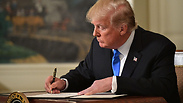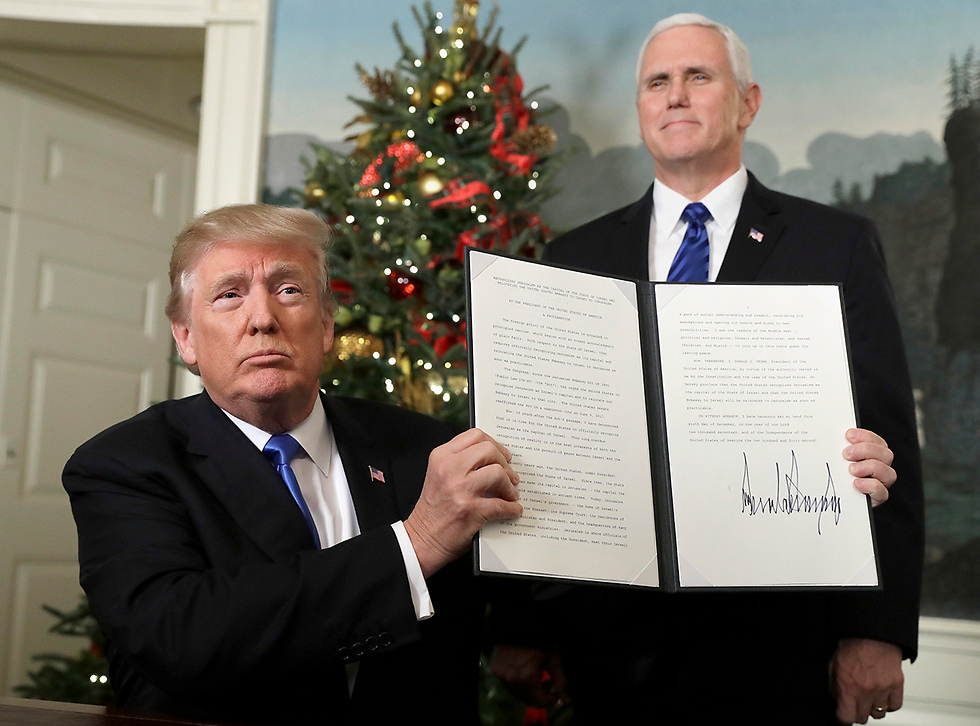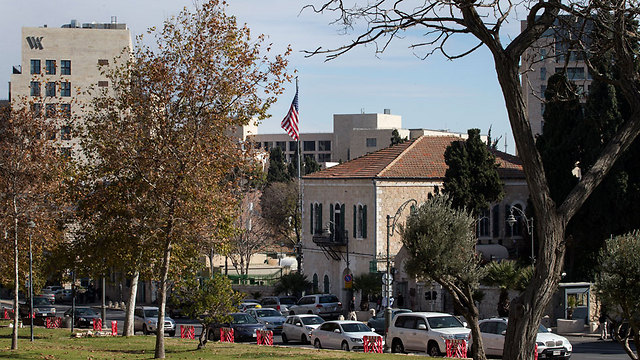

US likely to designate embassy in Jerusalem as early as 2019
Temporary plan will see existing US consular building in West Jerusalem designated as interim embassy until new one is built; Ambassador Friedman and top aides will move to the capital, while most embassy operations will remain in Tel Aviv in short-term.
WASHINGTON - The Trump administration is expected to approve a plan to move the US embassy in Israel to Jerusalem as early as next year, rather than waiting for several years, Trump administration officials said Friday.
Secretary of State Rex Tillerson has been considering several options since President Donald Trump, late last year, declared Jerusalem to be Israel's capital and announced the United States would finally move its embassy there from Tel Aviv.
Tillerson has said previously that building a new facility that satisfies the significant security requirements is a complex process involving site-selection, permitting and construction. He's said that process is starting immediately but will take at least three years.
Yet a temporary plan that has been presented to Tillerson would see an existing US consular building in West Jerusalem designated as the interim embassy until the new one is built, three US officials said.
Under the most likely scenario, US Ambassador to Israel David Friedman and a handful of top aides and support staff would open temporary offices in the Jerusalem annex by this spring -- possibly as early as April, the officials briefed on the matter said.
Friedman and the others would retain their workspaces in the old embassy building in Tel Aviv, but the step would allow Trump to say that technically the embassy had moved.
Most embassy operations would remain in Tel Aviv in the short-term, so the annex would effectively be a satellite branch of the Tel Aviv facility. But supporters of the move could make the case that the administration had followed through on its pledge to move the embassy to the holy city and that Tel Aviv staff is merely supporting the Jerusalem office.
Two of the officials say Vice President Mike Pence, a vocal pro-Israel advocate within Trump's administration, has been pushing the State Department to accept the proposal quickly so that Pence can announce it during a highly anticipated trip to Israel.
Pence departed Friday evening for his visit to the Middle East.

















